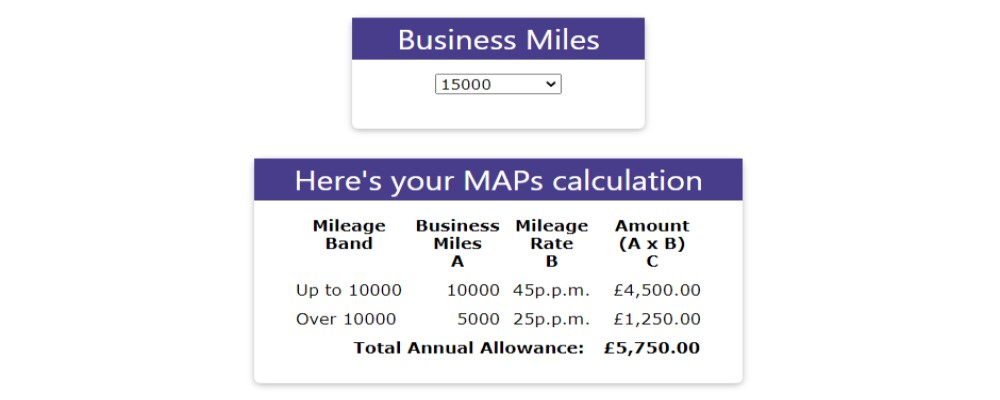ICE Or Electric: What Are Optional Remuneration Arrangements ('OpRA')?
We explain the tax impact of OpRA on Salary Sacrifice

6 January 2021
It's All Over Now The Fat Lady Has Sung
For many years HM Revenue & Customs felt that tax legislation and case law let off employees with undervalues for employment perks where there was a cash pay alternative available.
'Salary Sacrifice' (as it was often known) meant that complex tax case law applied to perks where a cash alternative was offered by an employer.
This quirk allowed some the opportunity to manipulate the perk tax system - they deliberately arranged for a cash alternative to be offered which was less than the normal taxable value of the perk, creating an artificially low taxable benefit for the employee.
Gotcha!
In the eyes of HMRC this type of arrangement cost the Treasury money. Eventually HMRC declared it had seen enough artifice in perk taxation and so from 2017 the law was changed.
Optional Remuneration Arrangements, or 'OpRA' (HMRC's name for Salary Sacrifice), were caught by new laws to tax the higher of:
- the perk, as measured under normal tax rules; or
- its cash alternative where one was available.
However, if the change in tax law had been implemented immediately, employers and employees could have been trapped in unfair applications of the new laws due to existing contractual obligations to provide perks.
So HMRC's 'fix' had to be phased in over four years in some cases to allow employers and employees to graduate towards the new rules.
As a result, the OpRA rules aren't being fully implemented until April 2021, but from then on the existence of a cash alternative to a perk will mean that, with few exceptions, the perk will be taxed according to the higher of the cash alternative or the normal taxable perk value.
So what does OpRA mean in practice for employers and employees?
A Night In At The OpRA
The rules are far more sophisticated than can be explained in a one page blog - you'd need to spend a lot of nights in front of the OpRA rules to get to the bottom of them, but basically they cover:
- 'Type A' arrangements, where an employee gives up the right, or the future right, to receive earnings (e.g. salary or a bonus) in return for a benefit. Type A catches benefits under salary sacrifice arrangements.
- 'Type B' arrangements, which are anything other than a 'Type A' arrangement, where employees agree to get a benefit rather than cash earnings. Type B allows the rules to be applied across a much broader base.
In simple terms though, what the OpRA rules mean is that, when an employee has a choice between cash and a perk and picks the perk, the employee will be taxed on whichever value is greater:
- the cash offered as an alternative; or
- the normal taxable value of the perk.
However, recognising that some employees were already locked into OpRA arrangements when the new rules started in 2017, HMRC allowed certain existing OpRAs to continue under the 'old' tax rules until April 2021, after which time the new OpRA rules would apply anyway.
Why was this important?
Well, some employees had entered into arrangements for perks which they couldn't give up immediately, perhaps because the employer had contracted for them over a fixed duration.
An example would be a company car, where an employer would perhaps have a vehicle on lease for a fixed period of years or a specified mileage.
Cancelling the lease so an employee could revert to a cash alternative could incur costs for early termination.
What Happens From April 2021?
From April 2021, for all perks caught by the OpRA rules the perk will be taxed on the higher value (cash or perk) and the transitional arrangements will no longer apply.
Take the example of an employee with a perk costing the employer £10,000pa.
Under typical perk tax rules the taxable benefit will be £10,000 (the annual cost to the employer), but if a cash alternative of £11,000 is available then the perk will be taxed under OpRA on the £11,000 cash alternative instead.
Reverse the values, so the perk costs the employer £11,000pa but the employee has a cash alternative of £10,000pa, and the employee will be taxed on the £11,000pa cost as this is higher.
Is Salary Sacrifice Still Worthwhile?
There are perks which get special treatment under the OpRA rules.
An example is company cars with 'lower' CO2 emissions.
Where the CO2 output of the car is less than 75GP/Km an employee opting for a company car will be taxed on the 'normal' benefit rules for cars even if a cash alternative is available.
Take care though where a car is provided under Salary Sacrifice arrangements and its CO2 output exceeds the limit - the car will be taxed according to the OpRA rules, so the higher of the cash foregone or the car benefit will apply.
Now, why does OpRA matter?
Well, think electric company cars, where special tax rules apply giving a zero taxable benefit in 2020/21 and an annual taxable benefit of just 1% and 2% of list price in 2021/22 and 2022/23 respectively.
This means that allowing employees to trade cash pay for an lower emission company car, electric cars in particular, could provide employees with access to a very attractive perk on favourable cost and tax terms.
Salary Sacrifice And Electric Company Cars
We've explained more about how Salary Sacrifice works for providing an electric company car in our blog page on the topic.
Click on this link to go to our blog.
We've also provided a calculator to work out whether a company car or cash pay would deliver a higher net value to an employee as part of a pay package.
Click on this link to go to our calculator.
Related Tools
Related Posts
What Else Do We Do?
DriveSmart has a unique suite of free online tools to help you find the right car.
Take a look at some of our amazing calculators and decision tools for new car buyers.
-
Lease or Buy?
Could you lease a new car for less than the cost of buying? Our lease calculator will work out the best finance method for you. -
ICE or Electric?
Would an electric car be cheaper than petrol or diesel? Our ICE or electric calculator compares running costs instantly. -
Cash or Car?
Could you give up your company car for a cash allowance? Our 'cash or car' calculator will tell you. -
Car Search
Find your next new car by monthly payment, standard equipment, performance, economy and more .... -
iceorelectric.com
Why not visit our iceorelectric.com website and see for yourself the amazing range of tools and analysis? We'll keep your place here while you browse.






